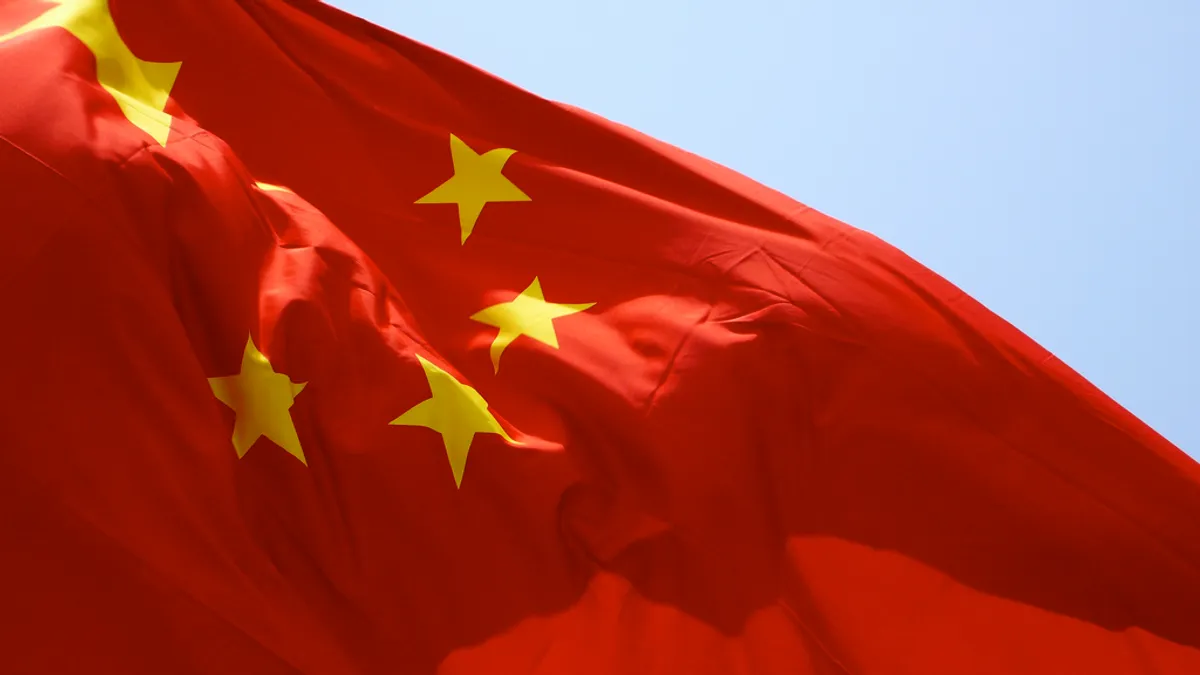Dive Brief:
- The U.S. on Monday placed Fujian Jinhua Integrated Circuit Company on its "Entity List," which prohibits the company from purchasing American parts due to national security concerns.
- In this case, the national security concerns relate to intellectual property theft. The New York Times reports the listing is the latest U.S. move to more strictly regulate business with China.
- Earlier this month, the U.S. Treasury Department outlined new ways to limit foreign investment in China. China reportedly asks U.S. companies to hand over technology rights in exchange for market access, a practice the U.S. objects to and is trying to counter.
Dive Insight:
The conflagration around China tariffs is overshadowing the issue of the theft or misuse of intellectual property (IP). Technology companies selling into China might tacitly ignore the ramifications of IP issues in exchange for sales revenue, but this long-term problem is becoming a battlefront on the U.S. trade war with China.
While most feel that the tariff issues with China will ultimately be successfully negotiated, the theft of IP by China or other countries will remain a critical issue. As it should.
We read about high profile intellectual property theft issues and are aghast, but at the same time ignore the day to day devaluation of our company’s IP through its casual handling and lack of understanding of its importance.
Sure, our prints and other documentation might have a clause in the title block claiming confidentiality but I’ll bet that most buyers, or suppliers, have never read it. The boilerplate on our purchase orders and contracts also have an IP clause that one needs a magnifying glass to read. I’ve heard too many buyers and sellers refer to those clauses as ‘food for the lawyers’.
We tacitly trust our tier-one suppliers to protect our IP, and by extension, their critical suppliers as well. But what about the other players in the extended supply chain? In our search for lower costs and faster deliveries, there might be members of the extended global supply chain with less regard for IP protection.
In the speed of light, our prints and specifications rocket around the world for essentially everyone to see, bad actors included.
Supply chain managers can at least offer a first level of protection by making sure that all suppliers sign a confidentiality agreement. Extend that protocol to critical tier-two suppliers as well. I am not naïve enough to think that a signed CDA will stop the spread of IP theft, but it will offer some legal protection for your company and set the tone with your suppliers that you treat IP carefully. And that you expect the same from them













